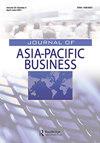恒大与房地产价值主体性
Q3 Business, Management and Accounting
引用次数: 0
摘要
世界媒体一直充斥着有关中国房地产开发商恒大(Evergrande)的报道,以及该公司可能无力偿还过多债务的消息。恒大是中国五大房地产开发商之一,参与的房地产市场占中国GDP的近30%。目前,恒大在中国拥有800多个项目,分布在不同规模的城市。不幸的是,由于该公司遇到流动性问题,其中500个项目最近停止了建设。有人可能会问,这是怎么发生的,因为中国的住房需求仍然异常火爆。事实上,恒大已经提前预售了120万套住房。史无前例的住房需求导致中国房价创下历史新高,韩国、日本、印度、澳大利亚也出现了这种现象。西方观众应该对房价上涨很熟悉,因为最近欧洲和北美的许多市场都在讲述同样的故事。由于大流行,我在家工作了近两年,住房从未像现在这样重要。不幸的是,至少在中国,收入的增加并没有跟上房价的上涨,导致恒大的首发公寓的面积不断缩小。随着中国购房者追求乐观乐观的未来,由此产生的第一套住房越来越像缩小版的自己。如果住房需求不是恒大的问题,那么什么才是?2009年该公司上市后,接下来的十年里,信贷宽松,利率低,这使得该公司能够通过收购土地来扩大自己的帝国。对于住房开发商来说,住房建设的第一步通常是购买土地。然后,该公司可以根据当地的分区条例,以及房屋美学和可负担性方面的考虑,决定建造哪种类型和多少套房屋。随着信贷推动的土地收购热潮的展开,恒大进行了多元化经营,涉足了一系列令人眼花缭乱的不相关业务,包括电动汽车、瓶装水(由成龙营销)、在线汽车销售、一家游乐园,甚至还投资了广州足球俱乐部。这些相互竞争的商业利益,加上累计超过5700亿元的有息债务,使恒大陷入了目前的困境。这些问题是如何对住房建设产生影响的,目前该公司60%的资产由未建成/未售出的房产组成。《亚太商业杂志》(JOURNAL OF ASIA-PACIFIC BUSINESS), 2022年第23卷,第2期。1,1 - 4 https://doi.org/10.1080/10599231.2022.2052448本文章由计算机程序翻译,如有差异,请以英文原文为准。
Evergrande and Real Estate Value Subjectivity
The world press has been rife with stories about Chinese housing developer Evergrande, and their probable inability to make do with their excessive debt payments. Evergrande, a top five Chinese housing developer, participates in a housing market that accounts for almost 30% of Chinese GDP. Currently, Evergrande has more than 800 projects spread among cities of all sizes in China. Unfortunately, construction has recently ceased on 500 of those projects as the firm has run into liquidity issues. One might question how this could happen, as housing demand in China has remained lightning hot. In fact, Evergrande had pre-sold 1.2 million homes in advance of completion. The unprecedented demand for housing has led to record home prices in China, a phenomenon also witnessed in Korea, Japan, India, and Australia. The increase in home prices should be familiar to Western audiences, as this same story has been told in numerous markets in Europe and North America recently. After almost two years of work from home owing to the pandemic, housing has never been more important. Unfortunately, at least in China, the concomitant rise in income has not kept pace with the increase in housing prices, causing the size of the Evergrande starter flat to continually shrink. As Chinese home buyers reach for that buoyant euphoric future, the resultant first home has increasingly resembled a smaller version of itself. If housing demand was not the problem for Evergrande, what was? After the company went public in 2009, the ensuing decade saw loose credit and low interest rates, which allowed the firm to expand their empire via land acquisitions. For a housing developer, the first step in housing construction is often land purchases. Then, the firm can decide on what type and how many homes can be constructed based on local zoning ordinances and housing aesthetical and affordability considerations. As the credit enabled land acquisition binge was unfolding, Evergrande diversified into a dizzying array of unrelated businesses including electric vehicles, bottled water (as marketed by Jackie Chan), online car sales, an amusement park, and even a majority investment in the Guangzhou football club. These competing business interests, along with the accumulation of over 570 billion yuan of interest-bearing debt, have brought Evergrande to its current predicament. How these issues compounded into the impact on housing construction is evidenced by 60% of the firm’s assets now consisting of unbuilt/unsold properties. In order to move JOURNAL OF ASIA-PACIFIC BUSINESS 2022, VOL. 23, NO. 1, 1–4 https://doi.org/10.1080/10599231.2022.2052448
求助全文
通过发布文献求助,成功后即可免费获取论文全文。
去求助
来源期刊

Journal of Asia-Pacific Business
Business, Management and Accounting-Business and International Management
CiteScore
2.50
自引率
0.00%
发文量
17
期刊介绍:
Present circumstances underscore the need to improve the understanding of conducting business with and within the Asia-Pacific countries. The Journal of Asia-Pacific Business™ provides a blend of cutting-edge knowledge and practical applications on business management and marketing strategy. In the Journal of Asia-Pacific Business™, you will find articles and feature sections that provide a pragmatic view of the business environment in this dynamic region. This essential resource offers readers a good blend of descriptive, conceptual, and theoretical articles dealing with current topics.
 求助内容:
求助内容: 应助结果提醒方式:
应助结果提醒方式:


